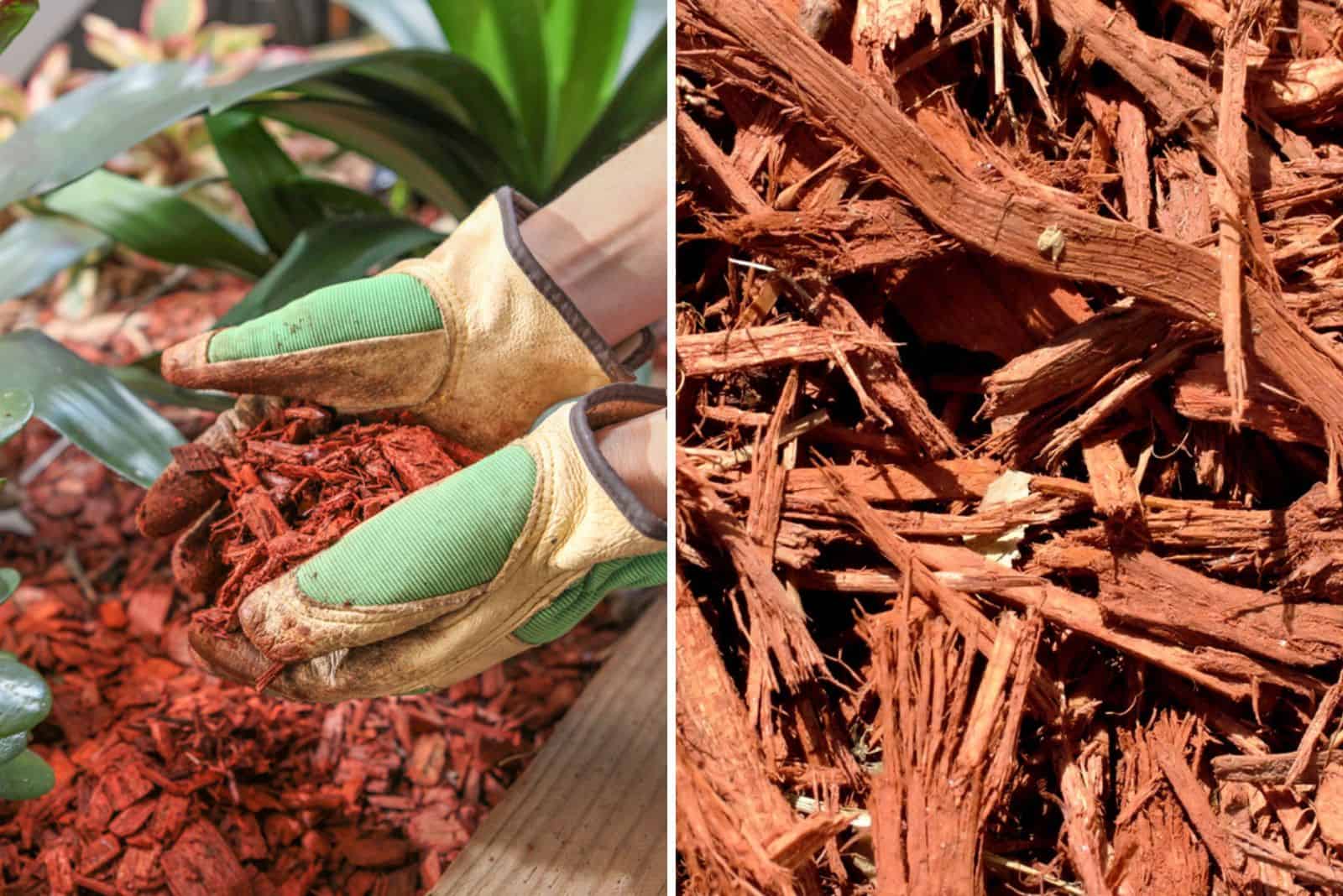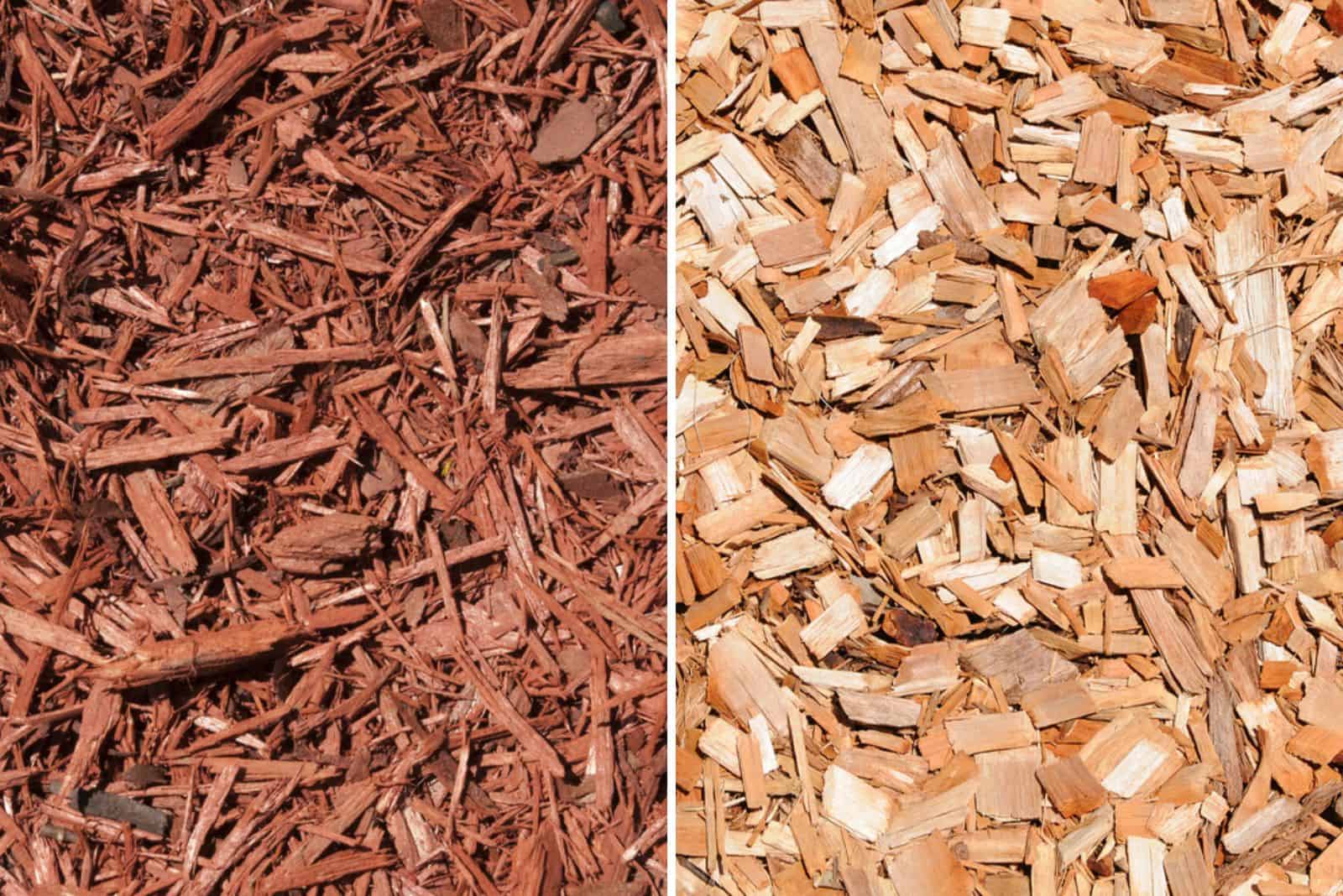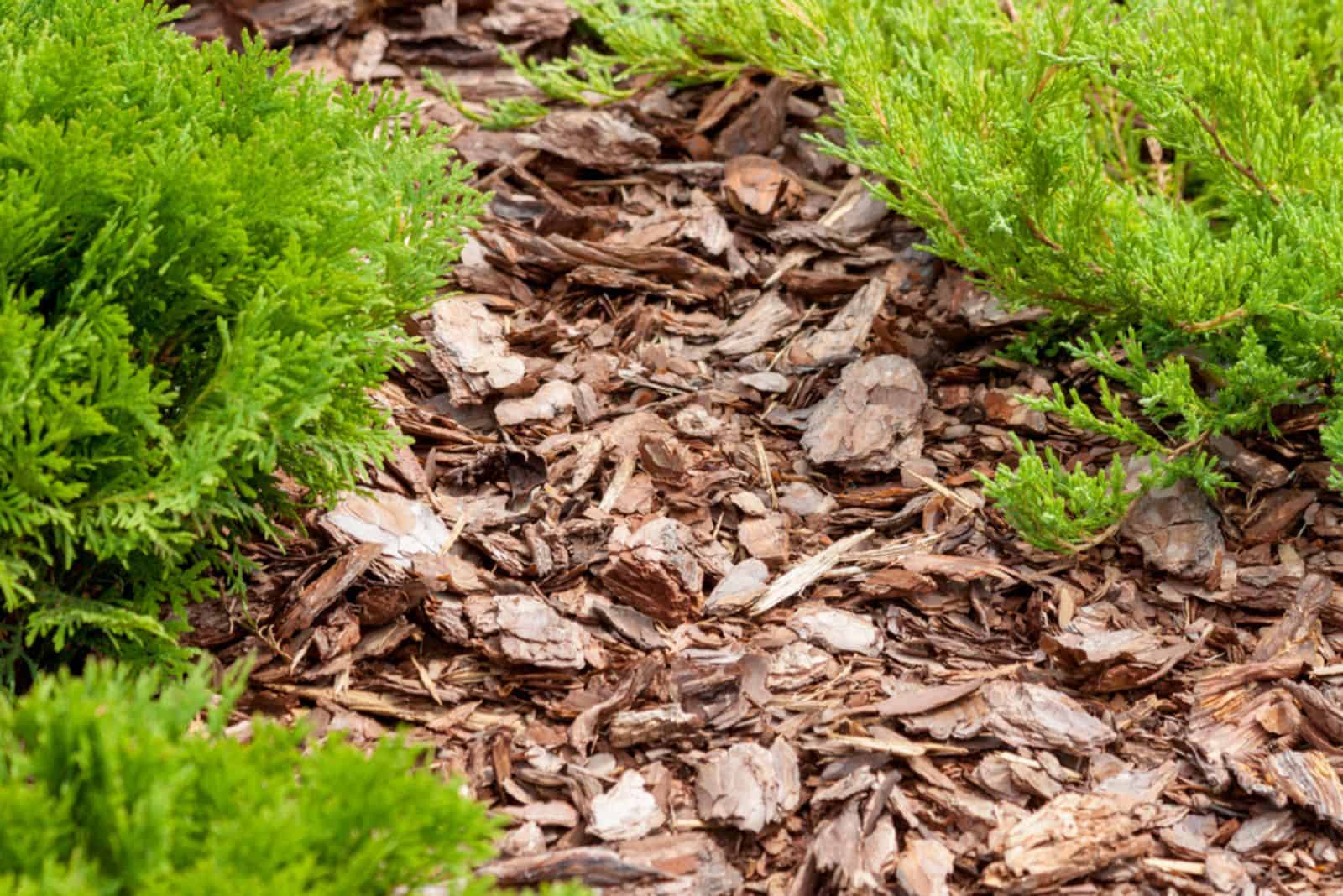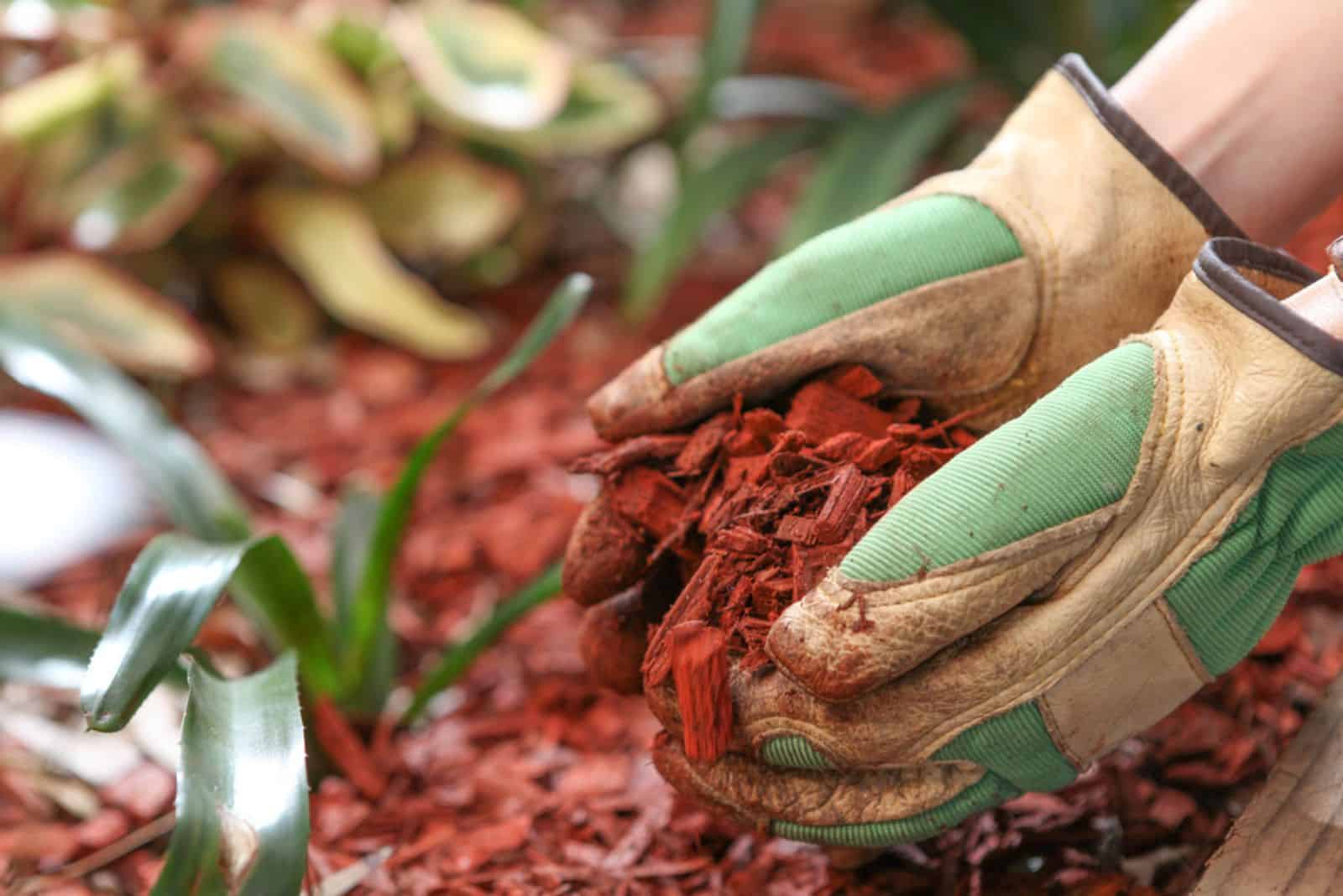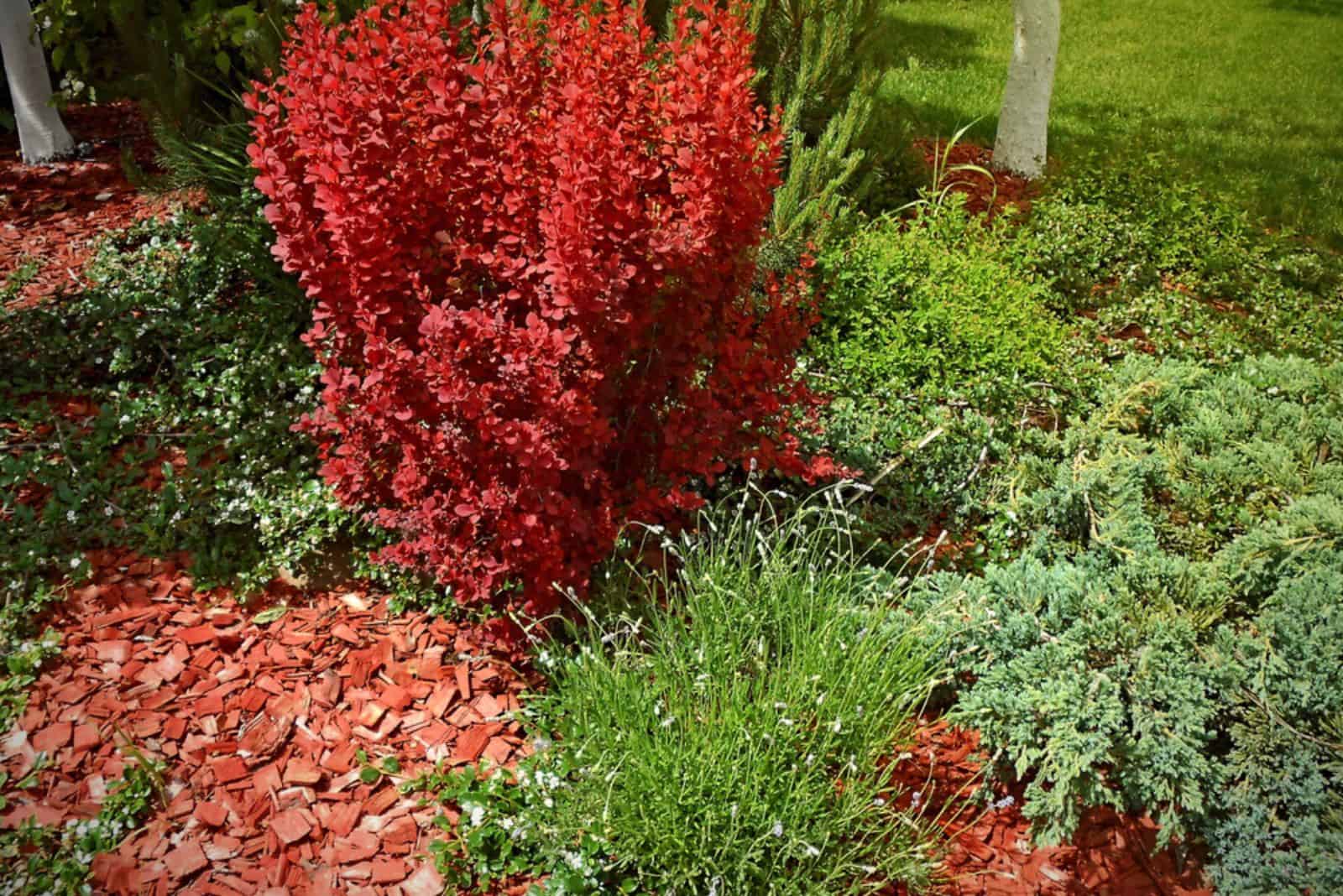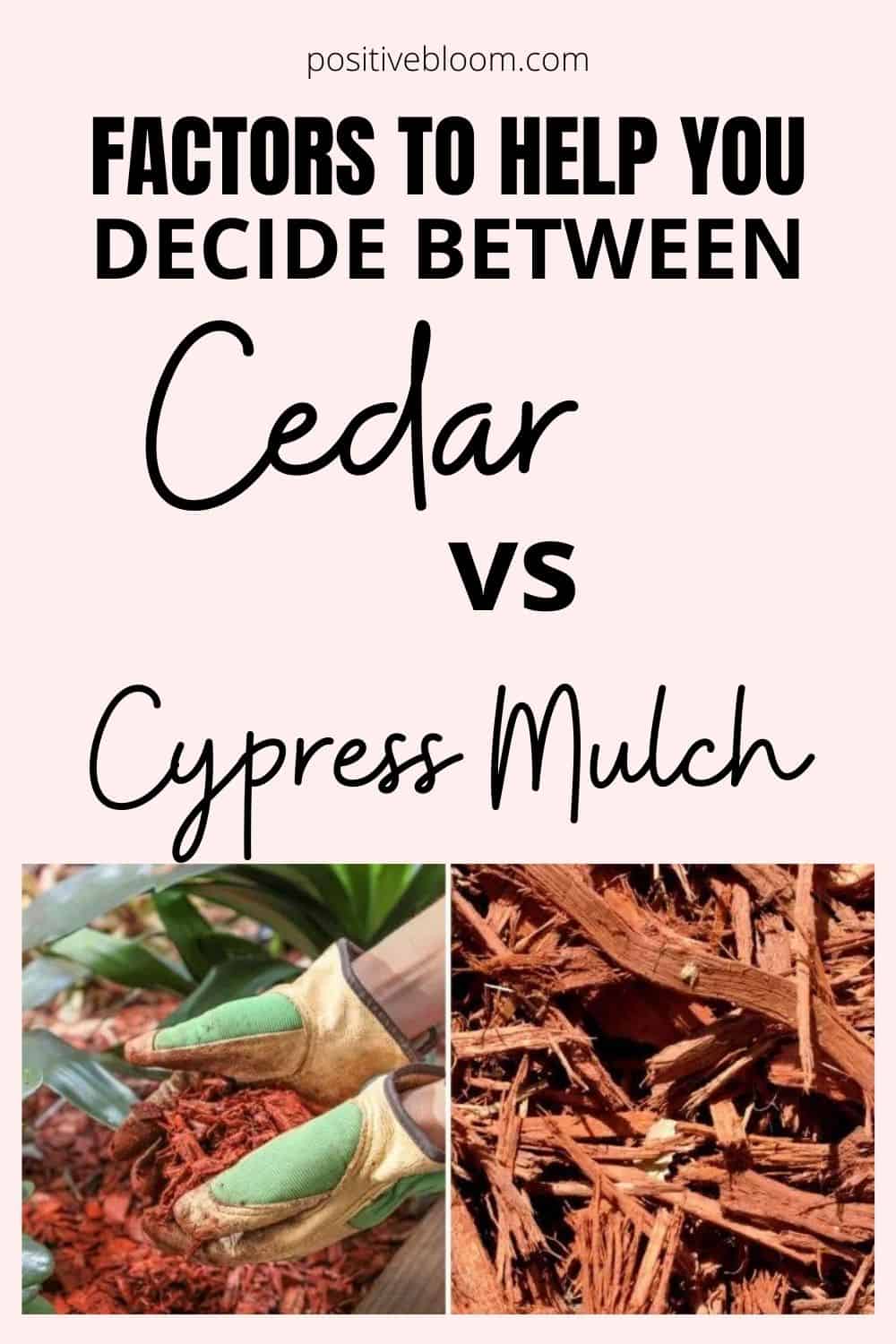If you’re looking for a way to make your flower beds and potted plants even more attractive, you might want to consider mulching them.
We’re used to using different types of mulch to increase water retention, maintain the soil temperature, prevent weed growth, etc., but it can also be used to improve the overall look of your landscape or home.
Just imagine those tiny white stones, coco coir, or pine bark on top of the soil!
But problems arise with the abundance of choice. Should we use organic or inorganic mulch, pine needles and bark, grass clippings, wood shavings, gravel, rubber mulch nuggets, or what?
Well, it all depends on your preference and your plant’s needs. For instance, if you want to enrich the soil with nutrients, you might want to consider organic mulch because it can leach them into the substrate.
You can use many mulch types, but today we’ll focus on cedar vs cypress mulch, discuss their benefits and drawbacks, and decide which one is “better.”
Let’s begin!
Cedar vs Cypress Mulch
Choosing the best type of mulch isn’t easy because there are so many options out there. But what can help you decide is learning their advantages and disadvantages, so discovering the pros and cons of grass clippings as mulch definitely has its benefits.
Say we want to go with something fancier, something suitable for potted plants even. In that case, you might want to check the differences between cedar and cypress mulch because both look stunning, although some things divide them.
Color
When you look at cypress and cedar trees, the difference is obvious. To put it simply, cedars look more like Christmas trees, whereas cypress trees have various shapes and can be extremely thin or quite branched.
Another thing that tells them apart is the color of their bark, and that’s what we’re interested in.
Cedar mulch has reddish tones, whereas cypress mulch is more of an orange-brown shade.
Price And Availability
The actual difference between these two mulches is in their affordability. Cedar trees can be obtained without difficulty, so they’re relatively cheap.
However, cypress forests are facing a significant decrease in numbers, especially bald cypress trees (Taxodium distichum), which are mainly used in the production of mulch alongside pond cypress trees (Taxodium distichum var. nutans).
Therefore, true cypress mulch is more expensive than cedar, but what do I mean when I say true mulch?
Well, cedar mulch is a hardwood mulch, implying it is made of bark, whereas cypress mulch is usually made of bark, ground-up leaves, trunk, and the branches of the trees.
This makes cedar mulch a better option for an outdoor garden as it cannot be easily blown away by the wind.
Environmental Friendliness
Eco-friendly gardeners opt for cedar mulch because reforestation of cedar trees isn’t difficult, and they usually take up to 30 years to mature.
However, cypress forests are known to filter pollutants in a natural way and provide natural habitats to many animals from southland wetlands, and destroying them damages these ecosystems.
Yes, cypress trees can be replanted, but it takes them about 100 years to mature, so the true growth of the tree population is imperceptible. That’s why it is also more common to use immature trees as mulch, which isn’t as good.
Furthermore, cedar mulch might not even include real cedar. Many of these mulches contain trees from the Thuja or Juniperus genera (such as red cedar, which is actually a juniper).
Ability To Repel Insects
Technically speaking, cedar mulch is a good insect repellant due to its fragrance, but that’s not always a good thing as it can also deter beneficial insects, which can be a problem if you use it outdoors as it repels pollinators.
Cypress mulch doesn’t have this power, but that also means that your bees and butterflies won’t have anything against it.
There’s also a popular gardening myth that states how these two mulches (cedar mulch in particular) are resistant to termites, but that’s not actually the case.
These insects will feed on any wood (although cedar and cypress aren’t their favorites) as it contains cellulose, and they might not start nibbling on your mulch until they’ve exhausted all other resources.
Cedar vs Cypress Mulch: Similarities
Even though cedar and cypress mulch differ, certain things make them quite similar. Both can last for a long period, prevent weed growth, and have similar moisture retention abilities.
We’ll talk more about these factors in the following sections.
Durability
Both cedar and cypress mulch are long-lasting, but there are things that can affect this. For instance, if you get large batches, it is highly likely that they’ll contain fillers such as pallets or even dead plant matter.
This might not seem like a big deal, but imagine that the plants had some kind of disease that then spreads all over your garden!
Furthermore, cypress mulch can contain the bark of immature trees, which isn’t as durable as other mulches and can fly away in heavy rain (just like pine bark mulch).
Moisture Retention
Another similarity between these mulches is their water retention ability. They absorb moisture, so you’ll have to be careful when irrigating your plants.
It’d be best to remove the mulch before watering your plants and then put it back in place to ensure that moisture has reached your plants’ roots.
Some gardeners claim that you can pre-soak the mulch, which will then allow the passage of water into the soil, but I guess we’ll never know until we try.
Weed Barrier
Finally, both mulches can prevent weed growth, but make sure to use at least a 3-inch layer.
Delicate weed sprouts won’t be able to penetrate the mulch and will wither away as they cannot get the sunlight they need to photosynthesize and produce food and energy to sustain themselves.
Pros And Cons Of Cedar Mulch
Everything in this world has its benefits and drawbacks, and the same goes for this type of mulch.
For instance, this material is an excellent choice for mulching potted plants, but it can also repel beneficial insects from your garden.
Of course, it has many other positives and negatives, and we’ll discuss them in the table below.
| PROS | CONS |
| • Maintains soil temperature | • More expensive than other wood mulches |
| • Keeps the soil moist for longer | • Can reduce nitrogen levels in topsoil |
| • Insect repellent | • Can deter beneficial insects |
| • Prevents weed growth | • Strong fragrance may bother some people |
| • Can stop water from running off | |
| • Has a pleasant odor | |
| • Improves the look of garden beds and potted plants | |
| • Long-lasting | |
| • Neutral pH (it won’t acidify the soil like pine bark mulch) | |
| • Replenishes nutrients in the soil |
Pros And Cons Of Cypress Mulch
Even high-quality cypress mulch has advantages and disadvantages. For instance, it is less cost-effective than other mulches, including cedar mulch, but it can enrich the soil with organic matter as it decomposes, lasts longer, and reduces the evaporation of water from the substrate.
It has other benefits and drawbacks, which we’ll compare in the following table.
| PROS | CONS |
| • Long-lasting | • Can be blown away by strong winds or washed away in heavy rain if not high-quality |
| • Attractive | • Not that different from other wood mulches in terms of appearance |
| • Has a pleasant fragrance | • More acidic than hardwood mulch |
| • Maintains soil moisture | • Repels more moisture than pine bark mulch |
| • Maintains soil temperature | • Difficult to determine its origin (some producers use immature cypress trees, which is inferior due to being thinner and less rot-resistant) |
| • Acts as a weed barrier | • Can burn more easily than other mulches |
| • Replenishes nutrients in the soil as it decomposes | |
| • Doesn’t repel beneficial insects |
Which Is Better, Cedar or Cypress Mulch?
The final question still remains: “What is the best mulch, cedar or cypress?”.
We’d go with the cedar mulch because it is cheaper, more eco-friendly, and can repel insects, so you won’t have to get pesticides that go against your organic gardening practice.
However, cypress mulch has many similar benefits, so it’s basically up to you to decide which one is best for your plants.
Remember that cedar mulch can repel beneficial insects as well, so we’d avoid using this material in an outdoor garden. However, your indoor potted plants would love it.
Every material has pros and cons (just remember the differences and similarities between wood chips and mulch), but a good guide can help you choose wisely!
Final Thoughts
This guide presented the main differences and similarities between cedar vs cypress mulch. We also included their benefits and drawbacks so you can finally decide which is more suited for your garden.
For instance, cedar mulch is more cost-effective and insect-repellant, but it can also deter beneficial insects. On the other hand, cypress mulch isn’t that eco-friendly, but at least bees and bumblebees will be able to get close to your flowering plants.
Every garden is different and has different requirements, so it’s basically up to you to decide.
Until next time!
Like this post? Share or pin it for later!

